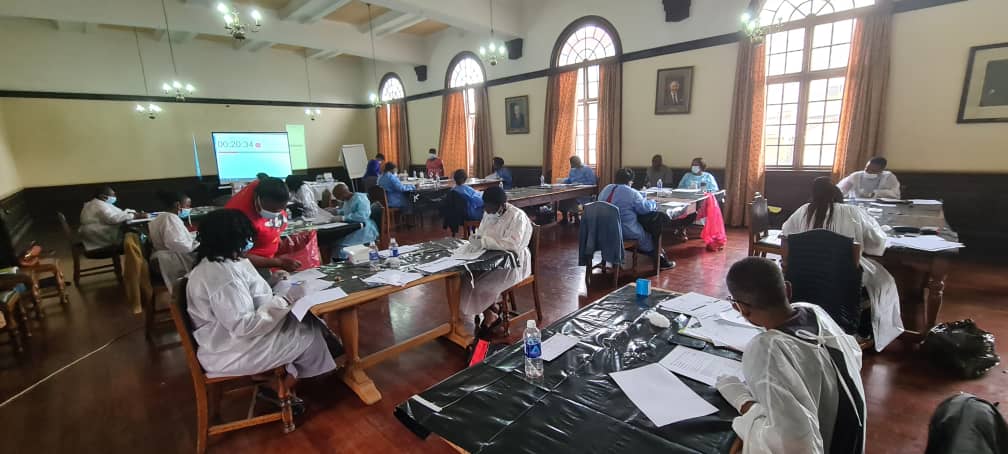|
Getting your Trinity Audio player ready…
|
The International Labour Organisation (ILO) Zimbabwe Office is doing a tremendous job through its Decent Work Agenda programme where it is providing HIV and AIDS support services to the working population.
In an interview with Spiked Online Media in Bulawayo recently, Ida Tsitsi Chimedza, the ILO Harare Programme Coordinator for HIV and Gender said her organisation is assisting the working population affected by HIV with advanced response services.
“The multi-stakeholder response to HIV and AIDS is reaping huge dividends to the working population. The HIV prevalence rate is now lower compared to the 80s and 90s era. Antiretroviral therapy (ART) is giving workers an opportunity for longer and healthier lives. As ILO, we are supporting people in the world of work with HIV services as part of the multi-sectoral response under the National AIDS Council (NAC) and the Ministry of Health and Child Care (MoHCC).
“The partners develop standards and tools for the HIV response. We developed a training manual at the workplace under the ILO Code of Conduct. We encourage employers to invest in HIV response programmes. We have supported 12 sector policies on HIV covering sectors like transport, mining, tourism, and energy, to name a few. As ILO, we coordinate Zimbabwe’s private sector HIV and awareness programmes,” Chimedza said.
The support extends to private medical operators and laboratories. ILO also works with structured associations that superintend workers in the informal economy. It trains HIV focal persons from various institutions and supports the extension of key services like HIV testing.
A fortnight ago in Bulawayo, the ILO trained nurses working in various industries to offer HIV services to workers. It also extended HIV testing, TB screening and provided condoms for free to the mining population of Venice Mine in Kadoma in partnership with NAC, MoHCC and i-Tech.
Chimedza urged companies with health facilities on-site to provide health services in line with standards set by MoHCC. The ILO trained occupational nurses affiliated with companies in Bulawayo on how to conduct rapid self-testing at the workplace. It has supported the review of the Labour Act as well as the enactment of Statutory 105 of 2014 which speaks about the response to HIV in the workplace.
In the past, there was a generalised response to HIV. There is now advanced response and targeted programmes for key populations, adolescents and young people as well as specific programmes targeting men. The ILO is also part of the Spotlight Initiative that includes UN agencies like UN Women, UNICEF, UNESCO, UNFPA, and UNDP. In partnership with the Zimbabwe Gender Commission, the ILO is working on a strategy to eliminate sexual harassment and violence in the workplace.
Susan Gwashure, the MoHCC National HIV Testing Services Programme Officer said the rapid testing training workshop for health workers in the private sector conducted by the ILO in Bulawayo was a good example of how public-private partnerships are a key component of driving inclusivity in line with the goal of ending AIDS by 2030.
“With these programmes, by the year 2025, 95% of people living with HIV should know their HIV status up from the current 88%. By the same year, 95% of PLHIV should be initiated on ART.,” Gwasure said.
